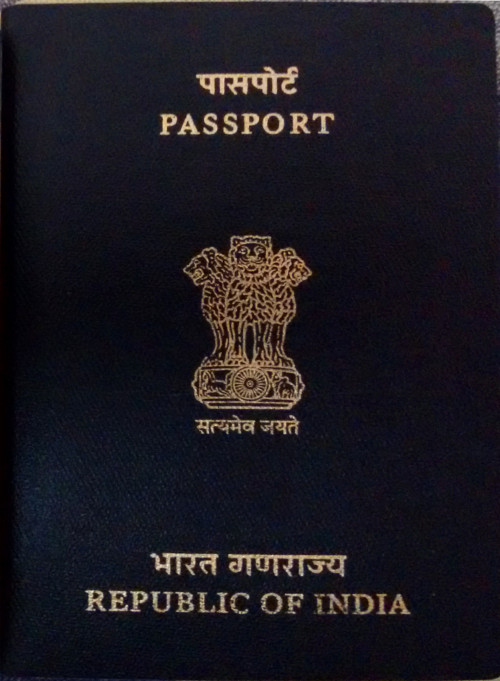Dubai– A German passport is the world’s strongest while the Indian is ranked 78th in the popular ranking of the world’s passports by a global advisory firm.
The latest passport Index devised by global financial advisory firm Arton Capital is based on cross-border access of national passports. It assigns a “visa-free score” according to the number of countries a passport holder can visit visa-free or with visa on arrival.
The index was released by passportindex.org. and saw Germany take first place with a visa-free score of 157, closely followed by Singapore and Sweden which were both ranked second with a visa-free score of 156. Singapore overtook South Korea as it became the highest ranked Asian passport.
 India stood at 78th position with a visa-free score of 46, whereas China was ranked at 58th. The Indian passport was still ahead of Sri Lanka and Pakistan, ranked 89th and 94th respectively.
India stood at 78th position with a visa-free score of 46, whereas China was ranked at 58th. The Indian passport was still ahead of Sri Lanka and Pakistan, ranked 89th and 94th respectively.
According to the list, Afghanistan’s passport was the least powerful with a visa-free score of 23.
The other top most powerful passports in the world included Denmark (155), Finland (155), France (155), Spain (155), Switzerland (155), Norway (155), Britain and the United States (155).
Regionally, the United Arab Emirates was the leading Gulf Cooperation Council (GCC) country with a score of 122, followed by Kuwait (81), and Qatar with a score of 77.
The lowest-scoring Middle East and North Africa (MENA) countries on list were found to be Iraq and Syria, said the report.
Marshall Islands saw the biggest change in the last year, adding 35 countries to its visa-free score. Palau and Micronesia followed with 34 additional countries, while Solomon Islands and Tuvalu added 33.
“The desire to improve opportunity and security transcends borders. As such, having a second citizenship has never been more relevant,” said John Hanafin, CEO of Arton Capital.
The index also added a new World Openness Score which tracks the progression of freedom of mobility across the globe. The world openness score rose to 17,948 in the first few days of 2017 from 17,925 in 2016.
“This trend shows opening of borders but will it continue? With the recent backlash against globalisation and ongoing immigration issues, the World Openness Score may be in danger of decline,” the report added.







